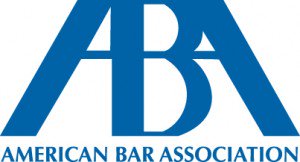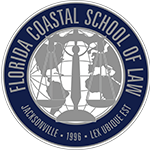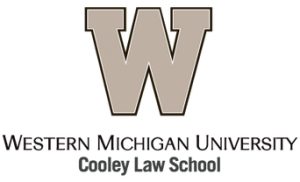 The American Bar Association (“ABA”), the regulatory body that oversees law school accreditation across the country, has recently been sued by the Florida Coastal School of Law, the now-defunct Charlotte School of Law, and most recently Arizona Summit Law School. All three for-profit law schools are owned by InfiLaw System LLC, a for-profit consortium of three independent law schools created in 2004 by Sterling Partners, a Chicago-based private-equity firm, and each of the schools operate as for-profit enterprises.
The American Bar Association (“ABA”), the regulatory body that oversees law school accreditation across the country, has recently been sued by the Florida Coastal School of Law, the now-defunct Charlotte School of Law, and most recently Arizona Summit Law School. All three for-profit law schools are owned by InfiLaw System LLC, a for-profit consortium of three independent law schools created in 2004 by Sterling Partners, a Chicago-based private-equity firm, and each of the schools operate as for-profit enterprises.
This blog post discusses the ABA’s recent actions that form the basis of the lawsuits, as well as some of the circumstances that may have led to those actions by for-profit law schools that are often the target of whistleblower actions under the False Claims Act.
Continually Lower Bar Passage Rates and ABA Inaction
Since 2014, Bar passage rates have been steadily plummeting across the country. This trend of lower and lower Bar passage rates seems to have culminated last year with the lowest scores ever on the Multistate Bar exam. Despite various reasons that some law schools have provided to explain the troublesome results, other commenters have pointed to problematic admissions practices at many law schools as the primary cause.
Unfortunately, the ABA did almost nothing to address the continually worsening problem until 2016, and even that may have only been due to a threat of a one-year suspension of its law school accreditation power from the Department of Education.
Enforcement Action against For-Profit Law Schools
 The ABA finally started to address the problem in October 2016, when they took enforcement action against several of the most troublesome for-profit law schools. The Charlotte School of Law was one of those schools and was the first of the InfiLaw group to face ABA enforcement action by being placed on probation. The ABA found that the Charlotte School of Law was not in compliance with ABA Standard 501(b) regarding admissions, which requires the school only admit students “who appear capable of satisfactorily completing its program of legal education and being admitted to the bar.”
The ABA finally started to address the problem in October 2016, when they took enforcement action against several of the most troublesome for-profit law schools. The Charlotte School of Law was one of those schools and was the first of the InfiLaw group to face ABA enforcement action by being placed on probation. The ABA found that the Charlotte School of Law was not in compliance with ABA Standard 501(b) regarding admissions, which requires the school only admit students “who appear capable of satisfactorily completing its program of legal education and being admitted to the bar.”
Later that year in December, the school was denied recertification of its application to participate in the Federal Student Financial Assistance Programs, after findings by the Department of Education that Charlotte made substantial misrepresentations to prospective and current students.
The following year in August, shortly after its license to operate in the state of North Carolina expired, the Charlotte School of Law officially closed.
Florida Coastal School of Law
 After its abrupt but much-needed flurry of enforcement actions, the ABA continued its attack on for-profit law schools with questionable admissions standards in 2017. The ABA found several more law schools out of compliance with Standard 501, including Western Michigan University Cooley Law School (which we will address later in this post) and InfiLaw System’s Florida Coastal School of Law, which was directed to submit a report and appear before the Committee in March 2018.
After its abrupt but much-needed flurry of enforcement actions, the ABA continued its attack on for-profit law schools with questionable admissions standards in 2017. The ABA found several more law schools out of compliance with Standard 501, including Western Michigan University Cooley Law School (which we will address later in this post) and InfiLaw System’s Florida Coastal School of Law, which was directed to submit a report and appear before the Committee in March 2018.
In response to the ABA’s findings, Florida Coastal announced in both December 2017 and again in Spring 2018 that it had raised its admissions standards for prospective students.
After appearing for its scheduled hearing in March, the ABA found that Florida Coastal was back in compliance with Standard 501(a), which requires that law schools “adopt, publish and adhere to sound admissions policies and practices consistent with the Standards, its mission, and the objectives of its program of legal education.”
However, in the same decision, the ABA found that Florida Coastal was still noncompliant with Standard 501(b). The ABA also directed Florida Coastal to develop a reliable plan, including admissions data and methodology, and said that the managing director of the ABA Section of Legal Education and Admissions to the Bar would appoint a fact finder.
Arizona Summit Law School
 The third and final InfiLaw System law school, Arizona Summit Law School, faced scrutiny and severe sanctions from the ABA in 2017.
The third and final InfiLaw System law school, Arizona Summit Law School, faced scrutiny and severe sanctions from the ABA in 2017.
In March 2017, the ABA placed the school on probation and ordered it to take Specific Remedial Action, due to findings of non-compliance with several ABA Standards, including 501(b).
Further, in January 2018 the ABA put the school on notice about its non-compliance with ABA Standard 202(a), which states: “The current and anticipated financial resources available to the law school shall be sufficient for it to operate in compliance with the Standards and to carry out its program of legal education.”
Most recently, on June 8, 2018, the ABA released a statement that they plan to withdraw approval of Arizona Summit as an ABA-accredited school, based on findings that the school is still noncompliant with standards for program rigor and academic support. The school has a right to appeal the decision by July 9, and Don Lively, the school’s president and founder, said they plan to do so though this is hardly surprising considering that withdrawal of ABA-approval would effectively force the school to cease operating.
Western Michigan University Cooley Law School Sues the ABA
 While it isn’t owned by InfiLaw System, Western Michigan University Cooley Law School has faced much of the same scrutiny as those schools, both publicly and through ABA action. In November 2017, the ABA found that Cooley was out of compliance with Standard 501(b). The ABA then posted a letter detailing its decision on their website’s Section of Legal Education and Admissions to the Bar, as required by federal law.
While it isn’t owned by InfiLaw System, Western Michigan University Cooley Law School has faced much of the same scrutiny as those schools, both publicly and through ABA action. In November 2017, the ABA found that Cooley was out of compliance with Standard 501(b). The ABA then posted a letter detailing its decision on their website’s Section of Legal Education and Admissions to the Bar, as required by federal law.
Like Florida Coastal, Cooley also had a hearing before the ABA scheduled for March 2018. Unlike Florida Coastal, however, the ABA determined at the meeting that Cooley was compliant with 501(b). This is perplexing for several reasons. The first is that Cooley actually had the lowest median LSAT (Law School Admissions Test) among all of the schools that had a hearing that March. In fact, the median LSAT scores for the 2014 and 2015 classes were the lowest EVER for an ABA-accredited school outside of Puerto Rico.
A possible explanation for the ABA’s seemingly inconsistent compliance decision is that rather than accept the ABA’s ruling and make efforts towards making the school ABA compliant, Cooley chose instead to sue the ABA (they also filed a temporary restraining order to stop the letter from being published, although a federal judge denied their motion). Cooley alleges in their complaint that the letter and decision concerning ABA non-compliance violates the Higher Education Act and constitutional law due process, and that the ABA’s enforcement of Standard 501(b) was arbitrary and capricious.
InfiLaw Schools Follow Suit
Notwithstanding the ABA’s puzzling decision in March to find Cooley compliant, the lawsuit between Cooley Law School and the ABA is still ongoing, however, now they have company.
Beginning with Florida Coastal on May 10, followed shortly after by Charlotte School of Law on May 15, and lastly, with Arizona Summit on May 24, all three InfiLaw’s schools are now actively litigating against the ABA. Each of the lawsuits alleges that the ABA violated due process when it reached its decision regarding the school’s compliance with admissions standards.
It is yet to be seen whether the ABA will reverse some of their previous findings of non-compliance at these schools because of being sued by them, as seems to be the case with Cooley. Let’s hope that’s not the way things turn out, lest “accreditation by lawsuit” starts to become a viable tactic for for-profit law schools with truly questionable practices that often land them in hot water with whistleblowers who file suit under the False Claims Act.


